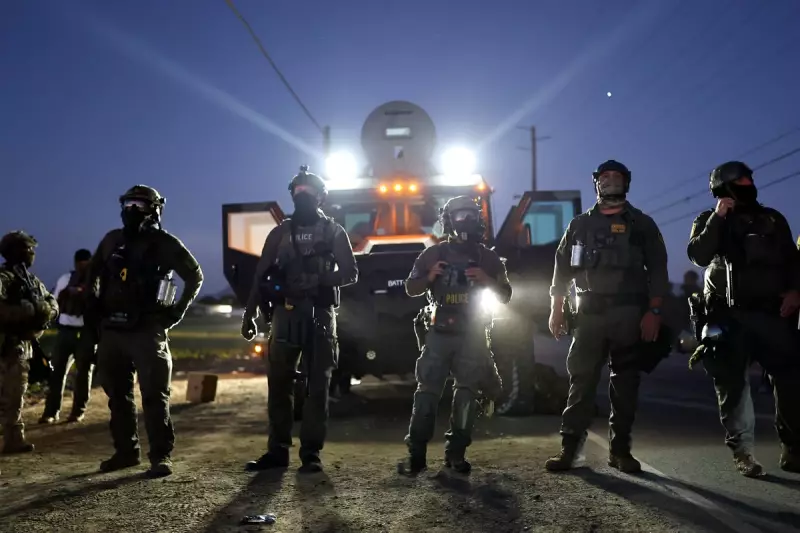
US Immigration and Customs Enforcement (ICE) is preparing to deploy bounty hunters and private investigators as part of a massive expansion of its immigration enforcement operations, according to newly revealed government documents.
Multi-Million Dollar Surveillance Operation
The agency has outlined an "immediate need" for skip tracing services that could involve contracting bounty hunters, bail bondsmen, debt collectors and repossession agents. Procurement records indicate ICE could allocate up to $180 million for physical surveillance operations targeting more than 1 million residential addresses across the United States.
Government contractors would be tasked with what ICE describes as "enhanced location research" – requiring them to collect photographic evidence and documents verifying subjects' residences and workplaces. This surveillance could include obtaining utility bills and other personal records to confirm individuals' locations.
Unprecedented Scale of Tracking Operations
The scale of the proposed operation is substantial, with ICE maintaining a "docket size" of 1.5 million addresses. According to the documents, private vendors would receive batches of 50,000 addresses each to investigate through systematic surveillance.
Investigators must provide "time-stamped photographs of the location" and may employ surveillance technology for real-time tracking. The documentation specifies that vendors should prioritise locating home addresses before attempting to find employment locations if residential verification fails.
Contractors are required to either report a target's precise physical location to authorities or inform the government if further surveillance efforts would prove fruitless.
Legal Scrutiny and Expansion Concerns
While ICE mandates that vendors "ensure compliance with all applicable laws and regulations governing data collection, privacy, and reporting", the proposals have raised significant concerns among civil liberties advocates.
The plans form part of the Trump administration's broader immigration enforcement strategy, which currently involves jailing more than 66,000 people in immigration detention centres nationwide – a record high. Congress has appropriated unprecedented funding levels that make ICE one of the world's most well-funded policing agencies, with budgets rivalling some nations' military spending.
Critics warn that rapid hiring of agents and contractors without adequate screening risks repeating past mistakes, referencing previous surges in Customs and Border Patrol personnel that correlated with increased corruption and misconduct incidents.
The Department of Homeland Security, which oversees ICE, aims to hire 10,000 additional ICE agents by next year, effectively doubling the agency's operational capacity with particular focus on its Enforcement and Removal Operations division.
ICE faces mounting legal challenges across multiple states, with lawsuits alleging widespread abuse in detention centres and illegal use of force during street operations. The agency is simultaneously expanding partnerships with local law enforcement and private contractors for detainee transfers while investing tens of millions in advertising campaigns and military-grade equipment for border patrol officers.





